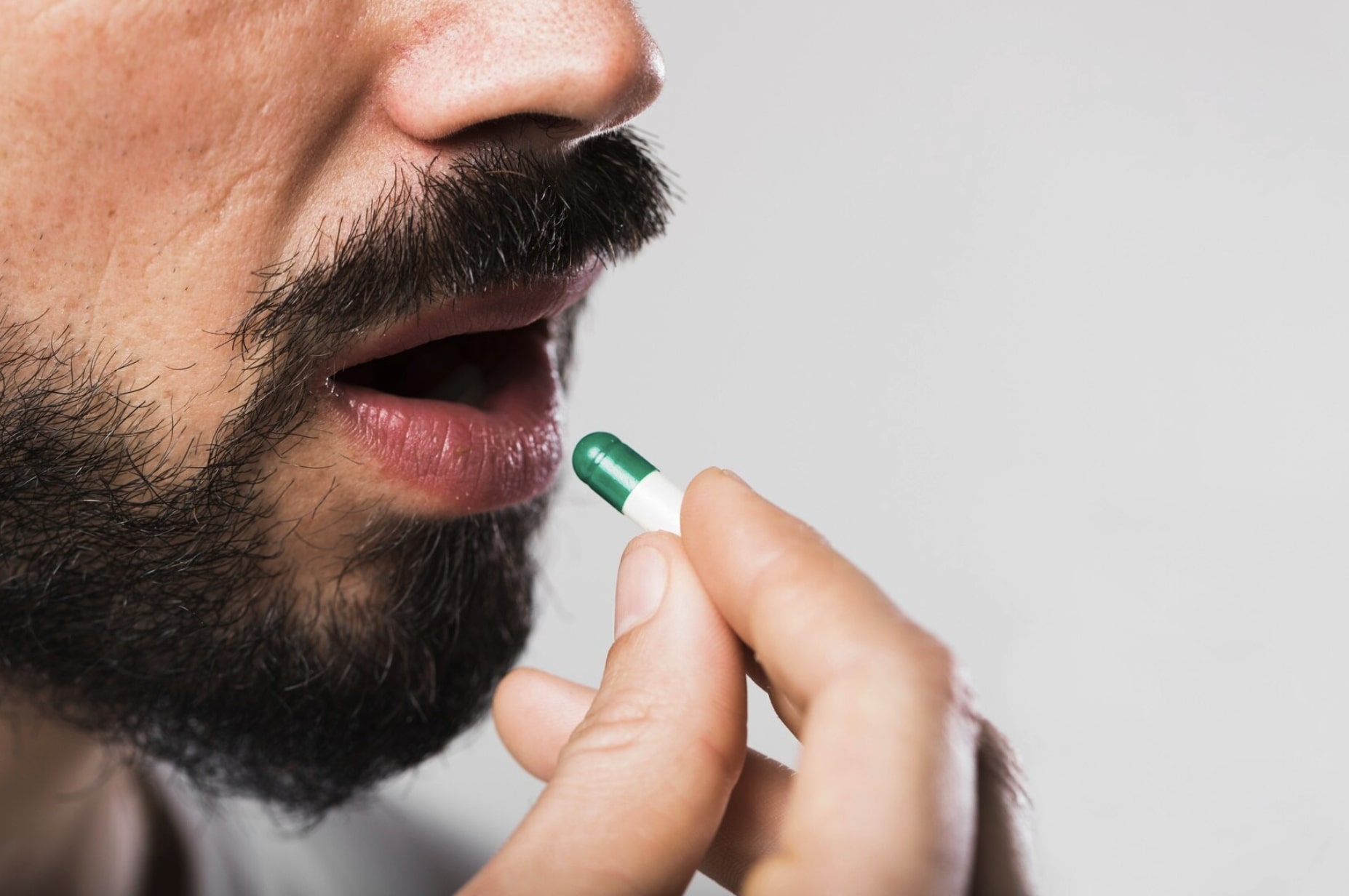Testosterone Replacement Therapy (TRT) offers significant long-term benefits for men's metabolic health. By restoring optimal testosterone levels, TRT can positively influence body composition, insulin sensitivity, and overall metabolic function.However, fully achieving these benefits requires a comprehensive approach that includes lifestyle modifications, regular monitoring, and awareness of potential risks. In this article, we’ll examine metabolic health in men and how TRT can help with improved energy levels, weight loss, and more.
Understanding Metabolic Health in Men
Metabolic health is the foundation of overall well-being for men, affecting how the body processes energy, maintains weight, and prevents chronic diseases. For men experiencing low testosterone, metabolic function can be significantly impacted, leading to issues like insulin resistance and fat accumulation. (1)
Core Components of Metabolic Health
Metabolic health is defined by several key markers, including:
- Blood sugar control
- Lipid profile
- Blood pressure regulation
- Body composition
Maintaining stable glucose levels reduces the risk of insulin resistance and type 2 diabetes, while a healthy lipid profile contributes to cardiovascular health. Proper blood pressure regulation supports metabolic efficiency, and a favorable muscle-to-fat ratio aids in maintaining a healthy metabolism. Each of these factors is interconnected, influencing how efficiently the body processes energy and regulates hormones.
The Role of Testosterone in Men’s Metabolism
Testosterone health plays a fundamental role in men’s metabolism. It influences a variety of components of male body composition, including muscle mass and fat distribution. It can also improve energy levels. When levels decline due to aging or medical conditions, men often experience increased fat accumulation, particularly visceral fat, reduced muscle mass leading to a slower metabolism, and a greater risk of insulin resistance, which can contribute to metabolic syndrome and diabetes. (2)By restoring testosterone levels, men may counteract these negative metabolic effects and support overall metabolic function.
How Testosterone Replacement Therapy Influences Metabolic Health
Testosterone Replacement Therapy (TRT) helps regulate key metabolic processes, leading to improvements in energy utilization and fat loss. For men considering starting TRT, understanding how it impacts metabolism can help them make informed decisions about their long-term health and well-being.
Balancing Hormones for Better Energy Use
TRT helps restore normal testosterone levels, which has the potential to improve muscle protein synthesis (3). Additionally, TRT can enhance fat oxidation, and potentially boost mitochondrial function—the powerhouse of cells responsible for energy production. These benefits contribute to a more efficient metabolism and sustained energy levels.
The Aromatization Factor
Testosterone naturally converts to estrogen through a process called aromatization, which is facilitated by the enzyme aromatase. While estrogen is essential for various bodily functions, including bone density maintenance and cardiovascular health, excessive levels can lead to complications such as increased fat storage and potential metabolic imbalances. When on TRT, managing estrogen levels is crucial to optimize the therapy's metabolic benefits and minimize adverse effects.Regular monitoring of hormone levels through blood tests and, if necessary, the use of aromatase inhibitors can help control estrogen production. Maintaining a balanced approach ensures that TRT provides its intended benefits while mitigating potential risks associated with elevated estrogen levels. (4)
Key Metabolic Markers Improved by TRT
TRT has the potential to positively impact several metabolic markers, from insulin sensitivity to lipid balance. These improvements contribute to overall health and a reduced risk of metabolic diseases.
Insulin Sensitivity and Blood Sugar Control
Testosterone plays a key role in glucose metabolism, and TRT can improve insulin sensitivity by enhancing glucose uptake in muscle tissue and reducing insulin resistance, lowering the risk of type 2 diabetes.Research has shown that TRT in hypogonadal men with type 2 diabetes resulted in significant reductions in insulin resistance and glycated hemoglobin (HbA1c) levels. (5)
Body Composition Shifts and Lipid Profile
TRT has been shown to increase lean muscle mass and reduce visceral fat in men with low testosterone levels. (6) These changes can contribute to a higher resting metabolic rate (RMR) and improved calorie expenditure.Additionally, TRT has been associated with improvements in lipid markers, such as increased HDL (“good” cholesterol) and reductions in LDL (“bad” cholesterol) and triglycerides, though individual responses may vary. (7) Regular monitoring helps ensure balanced lipid levels.
Maximizing Long-Term Metabolic Benefits on TRT
While TRT offers significant metabolic advantages, its full benefits are more fully realized when combined with proper lifestyle habits. Exercise, diet, and sleep all play crucial roles in ensuring long-term success.
Lifestyle Factors That Support TRT
Implementing the following lifestyle habits is critical to ensuring the long-term success of TRT on metabolic health. These include:
- Resistance and strength training to enhance muscle mass and insulin sensitivity.
- Cardiovascular exercise to support lipid health and fat loss.
- Nutritional strategies and a healthy diet that prioritizes protein intake, balances carbohydrates, and limits excess sugar intake.
- Limiting stress, which can counteract the effectiveness of TRT by releasing cortisol.
- Proper sleep habits — at least 7-9 hours per day to maintain testosterone levels and metabolic balance.
Monitoring, Adjusting, and Potential Risks
While TRT can be an extremely effective way to regulate metabolic health, it’s also essential to use it safely under proper medical supervision. Regular lab testing and awareness of potential side effects allow you and your doctor to develop a treatment strategy that works best for you and make any needed adjustments to your TRT for better long-term effectiveness.
Lab Tests and Ongoing Evaluations
Routine blood work ensures that TRT remains effective and safe. Essential tests include:
- Total and free testosterone levels to monitor hormone replacement adequacy.
- Estradiol levels to assess hormone conversion and balance.
- Complete blood count with hematocrit and hemoglobin to monitor for erythrocytosis.
- Lipid panels to evaluate cardiovascular health impacts.
- PSA (prostate-specific antigen) to monitor prostate health.
- Liver/kidney function tests to ensure safety
Regular assessments, typically every 3-6 months initially and then annually once stable, help fine-tune dosage and minimize risks.
Potential Side Effects and Cautions
While TRT is generally well-tolerated, potential risks include an elevated red blood cell count (erythrocytosis), water retention, or gynecomastia if estrogen is not well-managed. Fluctuations in cholesterol and blood pressure may also occur, necessitating careful monitoring. Working with a qualified healthcare provider ensures proper treatment adjustments to optimize benefits while mitigating potential side effects.
The Big Picture: Sustainable Metabolic Health with TRT
For men with clinically low testosterone, TRT can be a powerful tool for enhancing metabolic health, but its benefits extend beyond lab markers. Men who commit to a well-rounded approach—combining appropriate hormone replacement with nutrition, exercise, stress management, and sleep optimization—often see significant improvements in energy, motivation, and overall quality of life.
Quality of Life Improvements and Long-Term Considerations
Long-term metabolic improvements on TRT extend beyond lab markers. Men often experience higher energy levels, increased physical activity and motivation, improved mood and cognitive function, and reduced risk of metabolic-related diseases.It's important to recognize that TRT is typically a lifelong therapy requiring ongoing management. Periodic reevaluation of therapy, adjustments in lifestyle factors, and potential additional treatments may be necessary as men age or as health conditions evolve. Working alongside healthcare providers to take a holistic approach to health—rather than viewing TRT as a standalone solution— will provide the most stable benefits for metabolic health and overall well-being.
Embracing Long-Term Metabolic Health on TRT
Testosterone Replacement Therapy offers significant metabolic benefits for men with clinically low testosterone when combined with a healthy lifestyle. The synergistic approach of hormone optimization alongside regular exercise, balanced nutrition, quality sleep, and effective stress management creates the foundation for sustainable improvements. Regular medical monitoring and appropriate dosage adjustments ensure both safety and efficacy throughout treatment.By taking this comprehensive approach rather than viewing TRT as a standalone solution, men on replacement therapy can achieve sustained metabolic health improvements—including better insulin sensitivity, improved body composition, and reduced cardiovascular risk factors—while enjoying enhanced energy, motivation, and overall quality of life.References
- Testosterone and the metabolic syndrome
- Testosterone: a metabolic hormone in health and disease
- Effect of long-term testosterone therapy on molecular regulators of skeletal muscle mass and fibre-type distribution in aging men with subnormal testosterone
- Managing Estrogen Levels In Men On Testosterone Replacement Therapy (TRT)
- Testosterone Replacement in Hypogonadal Men With Type 2 Diabetes and/or Metabolic Syndrome (the TIMES2 Study)
- Dose-Response Effects of Exercise and Testosterone Replacement Therapy on Body Composition, Lean Mass, and Heart Rate Responses: A Case Report Using Wearable Technology
- Testosterone: a metabolic hormone in health and disease











